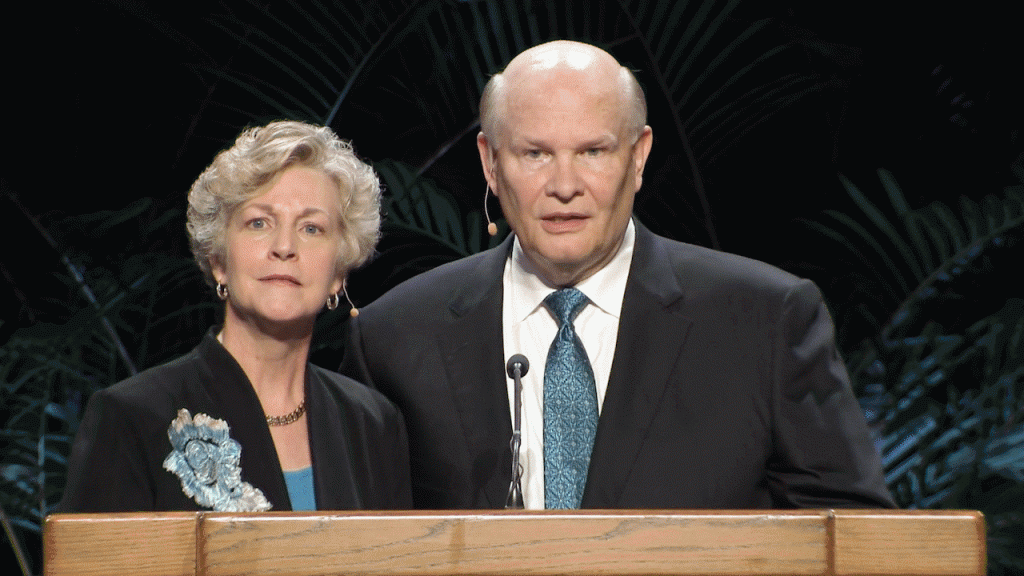Many faithful Mormons are having concerns about the Church’s doctrines, policies, and history. What do you think the LDS leadership’s attitude are toward those doubting members?
I think their attitude toward those members who are having doubts and questioning their faith was demonstrated in a recent church-sponsored, world-wide devotional for young adults.
Dale Renlund, an apostle in The Church of Jesus Christ of Latter-day Saints, spoke with his wife, Ruth. The address they gave on January 13, 2019, titled “Doubt Not, but Be Believing” was very unkind and uncharitable.
They told a parable about a boy who, was rescued from the sea. Once in the boat, the boy became unhappy with the condition of the vessel. The complaining boy demanded that he be returned to the sea from which he had been rescued.

George A. Smith
If he were a true apostle – a servant of the Lord – he would have showed understanding and compassion towards these members. He would have told his audience that doubt is actually a growth-element of faith. Using the Bible, the Renlunds could have shown that many of Jesus’s own disciples struggled with doubts and a lack of faith. He could have quoted Hebrews 11:1 which says, “Now faith is the substance of things hoped for, the evidence of things not seen.”
And, it would demonstrate these “doubters” aren’t taking their religion for granted. Latter-day Saints SHOULD compare Mormonism’s historical claims and doctrinal assertions against those of Christianity.
But the Renlunds say that would be a faithless thing to do.
But it is exactly what God calls us to do. A true apostle of the Lord – John – cautioned us in 1 John 4:1 “Beloved, believe not every spirit, but try the spirits whether they are of God: because many false prophets are gone out into the world.”
The Renlunds said that doubt and faith cannot exist in the same person at the same time. And that doubt NEVER leads to faith.
That is a blatant lie. Here, in the Bible is an example of a man who had faith – but struggled with doubt. Mark 9:23-24 “Jesus said unto him, If thou canst believe, all things are possible to him that believeth. And straightway the father of the child cried out, and said with tears, Lord, I believe, help thou mine unbelief.” If we were completely honest with ourselves – every devout follower of Christ has their doubts from time to time. That’s when we ask God to strengthen our faith as we get into HIs Word to search for answers.
The Renlunds said that doubt prevents a person from receiving answers from God.
Again, that sounds contrary to the message of the Bible. Even our Lord, Jesus Christ, had doubts in the Garden of Gethsemane about his ability as a mortal man to face the impending physical pain and torcher from the Roman soldiers. Jesus prayed to His Father – if there was any other way. The answer to His prayer came in the form of an angel who came to strengthen Him. It is often when we are in the throws of our doubting and questioning, that we become open to answers from God.
The Renlunds also said that doubt leads to being taken captive by the devil.
Sounds like scare tactics to me.
Try convincing the apostle Thomas of that. Following Jesus’ death, Thomas rejected the idea that Jesus was alive again. He said in John 20:25 “Except I shall see in his hands the print of the nails, and put my finger into the print of the nails, and thrust my hand into his side, I will not believe.” For eight days Thomas doubted and disbelieved. Was he taken captive by the devil – like the Renlunds said would happen? No! Jesus appeared to Thomas and provided the evidence Thomas needed. John 20:27 “Then saith he to Thomas, Reach hither thy finger, and behold my hands; and reach hither thy hand, and thrust it into my side: and BE NOT FAITHLESS, BUT BELIEVING.”
And, I love how Thomas responded to Jesus when he said in Verse 28 “My Lord and my God.”
Contrary to the bad advice about doubt, given by LDS apostle Dale Renlund and his wife – doubting and questioning are healthy thoughts that lead to study and research in an effort to find truthful answers. Our sincere intentions and diligent seeking draws us closer in our relationship with God.

